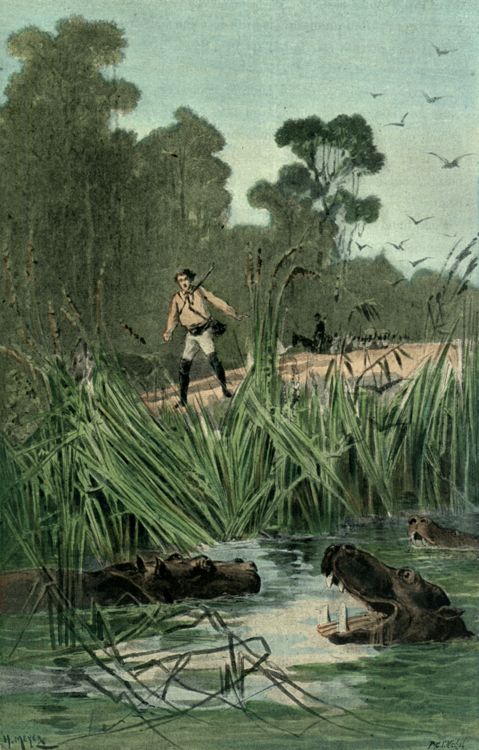 |
| Floods north of Darlington, as viewed from an East Coast train, November 30th 2012. |
Darlington is an industrial town in north-east England, known locally as Darlo, and famous as the birthplace of the British railway system. I pass through it most days on my train journeys between York and Durham.
| Darlington as it looked in 1937. |
The Okavango Delta is a huge expanse of watery grassland in Botswana, formed by a large river system draining into an inland basin, and famous for its wildlife. I learnt about it on various BBC nature documentaries, but I have never been there.
.jpg/1024px-Okavango_Delta,_Botswana_(2674364913).jpg) |
| The Okavango Delta, Botswana |
A link between the two would seem extremely tenuous, but this year has seen quite staggering quantities of water fall on Britain, and the fields north of Darlington have become transformed into a huge expanse of wetland. I have found myself unable to avoid dubbing it the Okadarlo Delta.
 |
| The Okadarlo delta, County Durham, November 2012. |
So far, the dominant tetrapod species of the Okadarlo appears to be the wintering black-headed gull. I have yet to see any lions, lechwe, or hippopotamuses.
 |
| A female lechwe leaps across a stream in the Okavango delta. |
However, since it is likely that this warming and wetting trend will continue, and the Okadarlo will become permanent, it is worth looking into the ecological future. What impact would an influx of hippos have on County Durham?
 |
| In other parts of northern Britain, hippos have been introduced successfully. |
On Twitter, my ichnological friend Tony Martin pointed me in the direction of a paper on the sedimentary structures they produce. Hippo wallows and trails are distinctive and seriously large features, which might be identifiable in the fossil record.
 |
| Hippo trails in Kenya, viewed from a hot air balloon. |
With a bit of further digging, I discovered that this study had built upon earlier work investigating the impact of hippos on the Okavango Delta. It turns out that hippoturbation is an extremely important example of ecosystem engineering; the whole Okavango flood might be dependent upon them.
 |
| The hippo trail: a biogenically engineered drainage channel. |
So, hippos could actually improve the regional drainage and, since they used to live in northern England, this basically counts as a reintroduction of a native species. If the local authorities are doubtful, concerned about the hippos' effects, we can use all this science to predict what Okadarlo will look like in a few years' time:
 |
| You find stranger sights than this on the Great Aycliffe Way already. |
And if they ever have second thoughts, the council can always use this place as a holding pen.
Comments